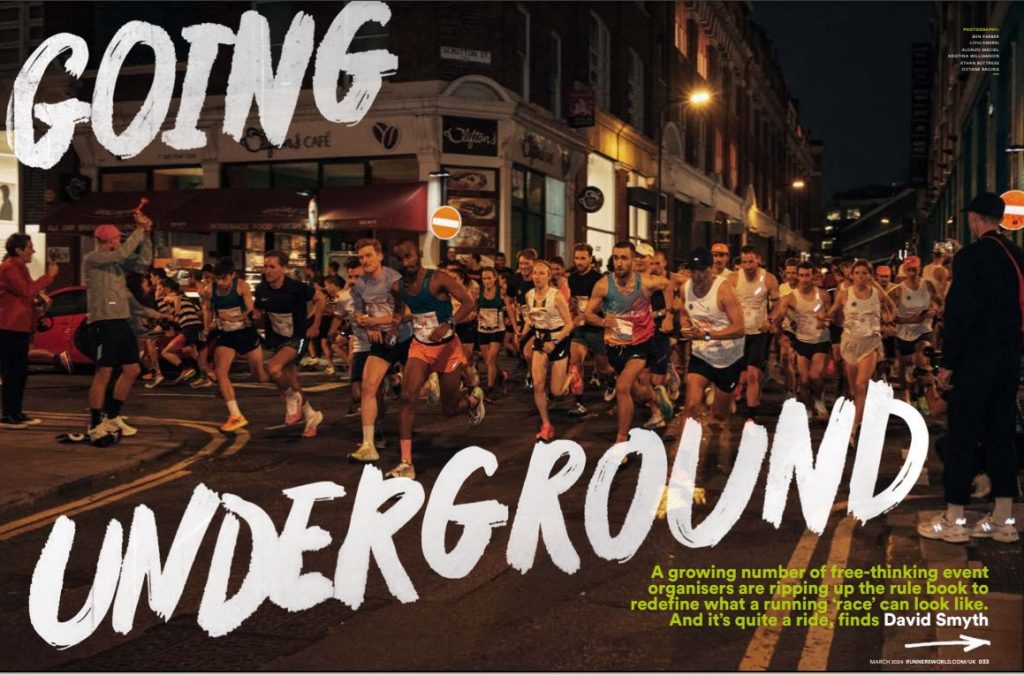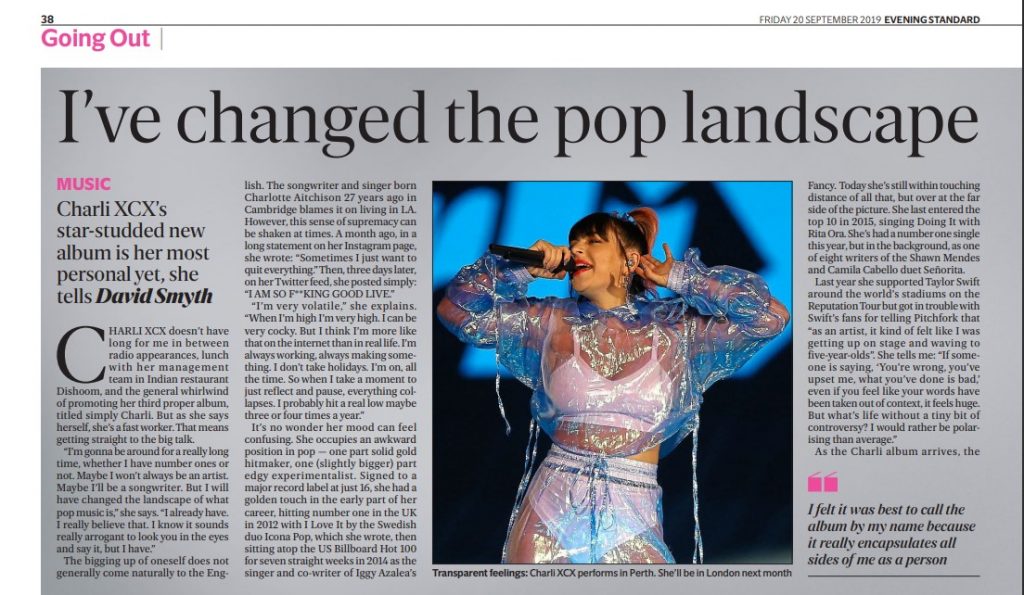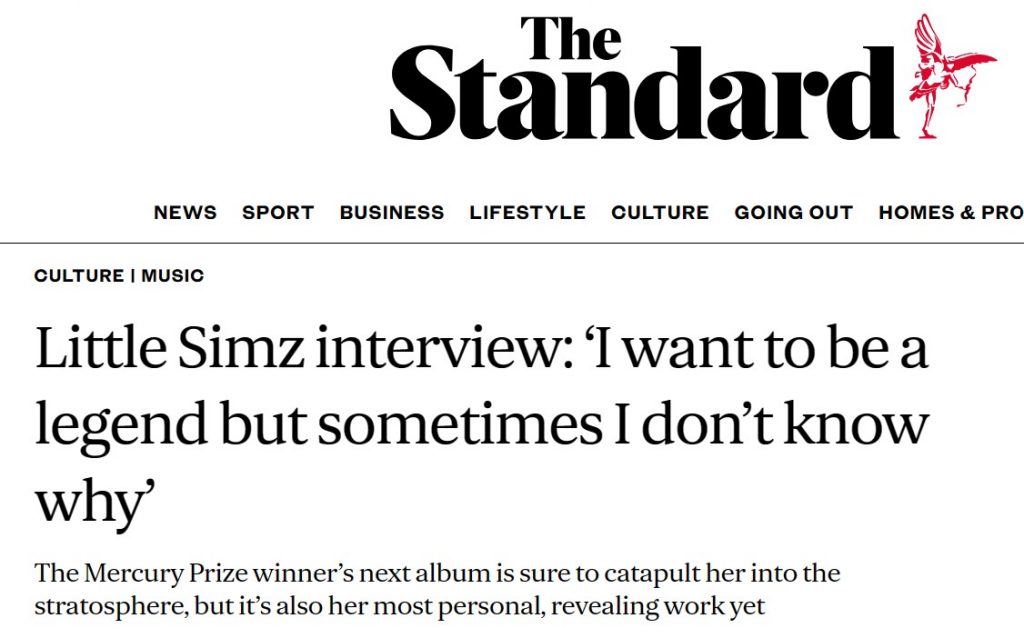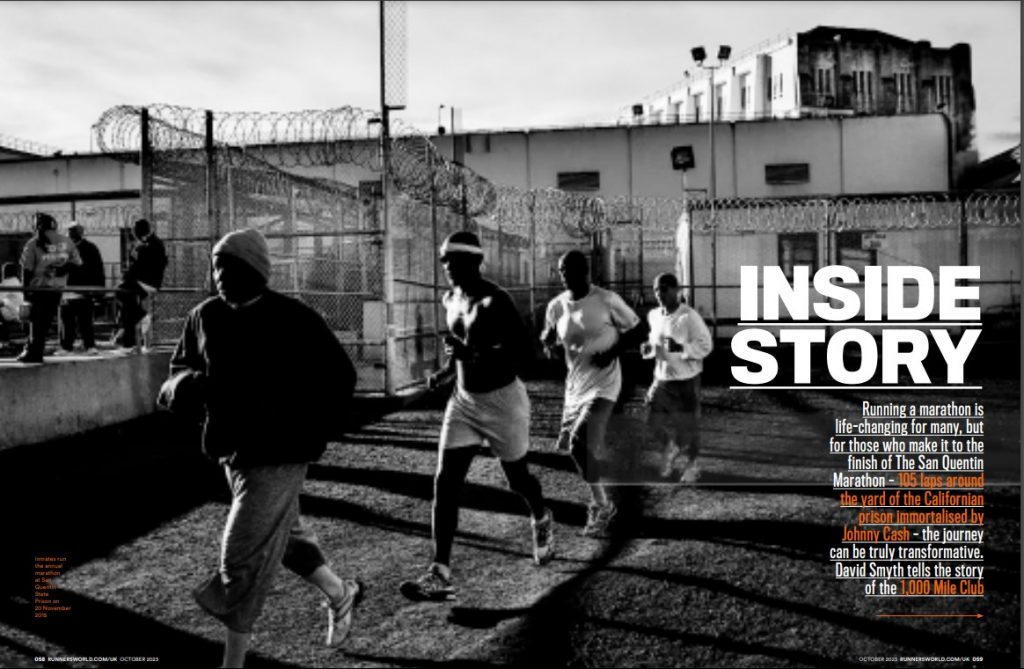Working together on their theatre show These Hills Are Ours, Daniel Bye and Boff Whalley presented themselves with a tricky conundrum: how do you bring trail running indoors?
On the small stage at the Spring Arts & Heritage Centre in Havant, near Portsmouth, are a few items normally found in the fresh air: a cairn, a broken barbed wire fence and a large map, which Bye will mark in fingerpaint while he relates the story of his attempt at a 90-mile run from his home in Lancaster to the top of Kinder Scout, the highest point of the Peak District. Whalley, the former guitarist in Tubthumping anarchist rock band Chumbawumba, provided practical support on the journey and underpins the tale on stage with deadpan interjections and a series of original folk songs.
What’s missing is the actual running. The pair sit on yellow chairs while they talk and sing – no treadmills or puffed-cheek miming. “Using a running machine would have felt like we were depriving the audience of imagination,” Whalley says. “It’s better if we tell you a story about running and you can picture it.”
When they collaborated on various productions in the past, the talk between the work always turned to running. Bye gets teased as the Strava bore, all about the data. Whalley is an old school fellrunner who doesn’t wear a watch. He published a book about his offroad escapades, Run Wild, in 2012, and produced a fanzine in the early Nineties called Fellternative. (“It was really interesting trying to be irreverent about something that’s already quite irreverent.”) So it was natural for them to gravitate towards a new project about the subject, but they knew that it had to mean something too.
“At the root of everything we do is the idea that this can’t just be entertainment,” Whalley continues. “If the point was to encourage people to go running, that wouldn’t be enough. We started thinking about running as escaping – not just from a city, but from technology, from work, from class, from your own history. What’s the history of us being able to do these things? All of that makes it much more interesting than talking about your split times.”
In the show they talk about their shared desire to go, fast and on foot, to the highest point around. For Whalley in his early years it was Pendle Hill, 550m above Burnley. For Bye it was Roseberry Topping, a Yorkshire Moors mini Matterhorn that sounds like a Heston Blumenthal dessert. But they chose Kinder Scout to be the centre of the story for a good reason. In 1932 it was the site of a mass trespass, when around 400 ramblers and members of the Young Communist League walked to the summit to protest against the lack of access to the British countryside. Five of them, including leader Benny Rothman, received prison sentences, and the resulting public sympathy is often credited with eventually opening up much more UK land to us common folk.
However, it wasn’t until 1965 that Britain’s first National Trail, the 268-mile Penine Way, was declared open, and the “right to roam” wasn’t protected in law until the Countryside and Rights of Way Act 2000. These privileges are more recent and more fragile than we might think, and there’s a “use it or lose it” message in the conclusion of the performance. Even today, details about land ownership are secretive but according to Guy Shrubsole, activist and author of ‘Who Owns England?’, two-thirds of land in the UK is owned by 0.36% of the population.
“Ramblers are often portrayed as cuddly, but they went to Kinder Scout to get into a fight. They were knowingly breaking the law,” says Bye. “They’re part of this proud history of disruptive protest that includes the suffragettes and Black Lives Matter. We sort of gloss over that in school history lessons – all the ways that change has been made through struggle – because we don’t want to encourage people to break the rules.”
As to the realities of his epic tribute trek, you’ll have to see the show to find out how it went. As with any 90-mile run, it was no walk in the park. He’s not expecting others to do the same (though you can join him and Whalley on a local jog the morning after every show) but hopes to inspire audiences in one way or another.
“People who’ve seen it have been getting quite emotional,” he says. “I think they’re leaving with a sense that a long run is possible, or that changing the world for the better is possible, or both. That’s amazing.”
These Hills are Ours tour dates are at danielbye.co.uk/these-hills-are-ours













